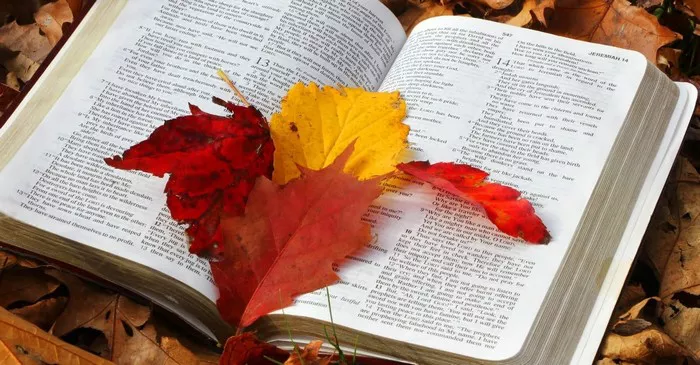Gratitude is a universal sentiment deeply intertwined with human consciousness and spiritual practice. Across cultures and religions, the act of giving thanks is revered as a transformative force that not only enriches individual lives but also strengthens communal bonds. At its core, gratitude is a profound acknowledgment of the good in one’s life, fostering a sense of humility, connection, and resilience amidst challenges. In this article, we delve into the essence of gratitude, explore its significance in various contexts, and contemplate what constitutes the greatest prayer of thanks.
Understanding Gratitude: A Psychological and Philosophical Perspective
Gratitude, from a psychological standpoint, is more than a fleeting emotion; it is a positive trait that can be cultivated through conscious effort and practice. Researchers in the field of positive psychology have studied its effects on well-being, finding that grateful individuals tend to experience greater happiness, satisfaction with life, and resilience in the face of adversity. The practice of gratitude involves not just recognizing one’s blessings but also acknowledging the role of others in contributing to those blessings, whether through acts of kindness, support, or simply being present.
Philosophically, gratitude has been explored as a moral virtue across various traditions. From the Stoics of ancient Greece to the teachings of Eastern philosophies such as Confucianism and Buddhism, gratitude is seen as a fundamental aspect of ethical living. It cultivates a sense of interconnectedness and reciprocity, reminding individuals of their dependence on others and the interconnected web of existence.
Expressions of Gratitude in Different Cultures
Cultural variations in expressing gratitude highlight its universal appeal and diverse manifestations. In Western cultures, the tradition of saying “thank you” is commonplace, yet the depth of gratitude extends beyond mere words to encompass gestures of appreciation, such as writing thank-you notes or performing acts of kindness in return. In Eastern cultures, gratitude may be expressed through rituals, ceremonies, or gestures of respect towards elders, ancestors, and nature.
For instance, in Japan, the concept of “giri” signifies a debt of gratitude that extends beyond simple appreciation to encompass a sense of obligation and reciprocity towards others. Similarly, Indigenous cultures around the world often incorporate gratitude into their spiritual practices, honoring the earth, ancestors, and natural forces through rituals and ceremonies that celebrate interconnectedness and stewardship.
The Role of Gratitude in Spiritual Traditions
Spiritual traditions provide a profound framework for understanding and practicing gratitude as a transformative spiritual discipline. In Christianity, gratitude is central to prayer and worship, exemplified in the Eucharist or Thanksgiving celebrations. The Psalms, particularly Psalm 100, are often cited as expressions of thanksgiving and praise, inviting believers to “Enter his gates with thanksgiving and his courts with praise.”
In Islam, gratitude (shukr) is considered a fundamental aspect of faith, with Quranic verses emphasizing the importance of acknowledging God’s blessings and showing gratitude through worship and righteous deeds. The Islamic tradition encourages believers to express gratitude not only during times of abundance but also in times of hardship, trusting in God’s wisdom and mercy.
Practical Strategies for Cultivating Gratitude
While gratitude may come naturally to some, it can be nurtured and strengthened through intentional practices. Several strategies have been identified to cultivate gratitude in daily life:
Keeping a Gratitude Journal: Regularly writing down things one is thankful for can enhance awareness of blessings and foster a positive mindset.
Practicing Mindfulness: Mindfulness techniques, such as focusing on the present moment and acknowledging sensations, thoughts, and emotions without judgment, can deepen appreciation for life’s experiences.
Expressing Thanks: Actively expressing appreciation to others through words, gestures, or acts of kindness not only strengthens relationships but also reinforces one’s own sense of gratitude.
Reflecting on Challenges: Viewing setbacks and challenges through a lens of gratitude can reveal hidden opportunities for growth and learning.
Engaging in Service: Volunteering and helping others in need can cultivate empathy and gratitude by recognizing one’s ability to make a positive impact.
SEE ALSO: What Are Thanksgiving Traditions? Feasting & Devotionals
The Power of Collective Gratitude: Building Community and Resilience
Beyond individual practice, collective expressions of gratitude have the power to strengthen communities and foster resilience. Community-based gratitude initiatives, such as gratitude circles or communal celebrations, create opportunities for shared reflection and appreciation. In times of crisis or adversity, communal expressions of gratitude can provide solace, hope, and a sense of unity amidst uncertainty.
Gratitude and Well-being: Scientific Insights
Recent scientific studies have shed light on the physiological and psychological benefits of gratitude practices. Research suggests that cultivating gratitude can improve physical health by reducing stress, enhancing immune function, and promoting better sleep. Psychologically, gratitude is linked to increased positive emotions, greater resilience to trauma, and improved overall well-being.
Neuroscientific investigations have revealed that practicing gratitude activates brain regions associated with reward processing and empathy, suggesting that gratitude is not merely a social construct but a deeply ingrained aspect of human cognition. These findings underscore the profound impact of gratitude on brain function and emotional regulation, highlighting its potential as a therapeutic intervention in clinical settings.
Conclusion
Ultimately, the greatest prayer of thanks transcends religious doctrines and cultural customs to embody a universal longing for connection, meaning, and transcendence. It is a prayer that arises from a heart filled with humility and awe, recognizing the intricate tapestry of life’s blessings and challenges. It is a prayer that acknowledges the interconnectedness of all beings, past, present, and future, and embraces the mystery of existence with reverence and gratitude.
In conclusion, gratitude is more than a virtue or sentiment—it is a transformative force that has the power to enrich lives, strengthen communities, and foster resilience in the face of adversity. Whether expressed through prayers, rituals, acts of kindness, or moments of silent reflection, gratitude invites individuals to pause, reflect, and appreciate the abundance of blessings that surround them. As we navigate the complexities of modern life, let us embrace gratitude as a guiding principle and a source of inspiration, cultivating a spirit of thankfulness that transcends boundaries and unites us in our shared humanity.

